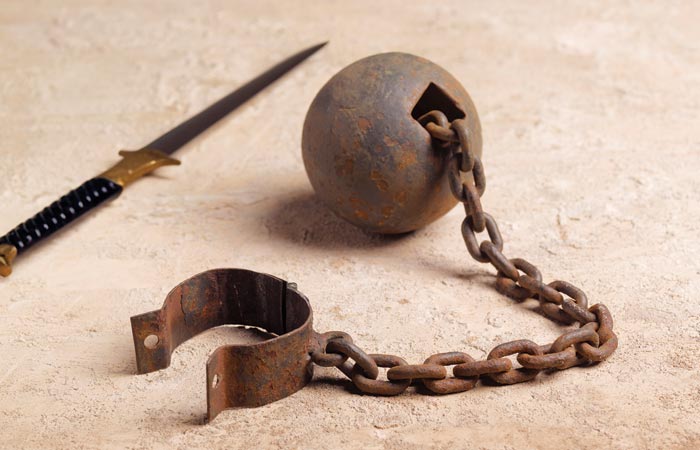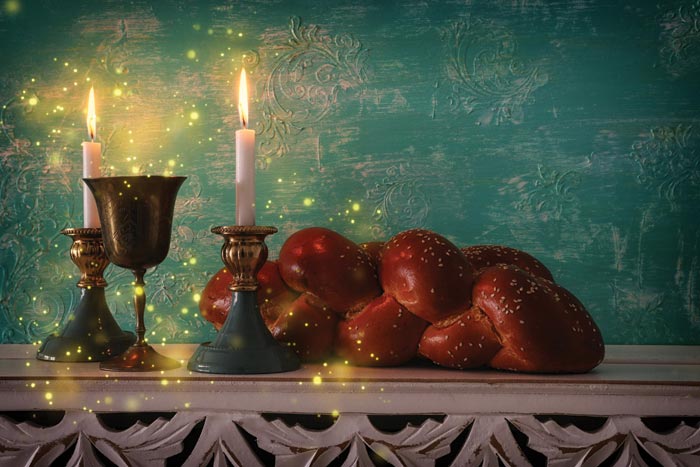Rabbi Eli Herscher is leading a discussion about the December holidays with about two dozen participants of Stephen S. Wise Temple’s Holiday Workshop Series. The class attracts a good number of intermarried couples and those considering conversion, but they are not the only ones who squirm over the topic.
The rabbi begins this session by asking participants whether they have any concerns about the upcoming holidays. It is a young couple’s turn to respond. Both are Jewish. The wife speaks first. “I don’t have any concerns,” she says.
Then her husband speaks. “I’m concerned that Christmas is my favorite day of the year.”
“OK, I do have concerns,” corrects the wife.
So begins another exchange for Herscher, who has led this session of the Holiday Workshop Series for the past 24 years.
After listening to the class members voice concerns ranging from how — and whether — to celebrate Christmas with non-Jewish relatives, to how to combat the materialistic spin of the holiday, Herscher goes straight for the jugular. He begins with the Christmas tree.
First he explains that the tree represents the wood of the cross. And while some Jews may feel that the tree no longer carries any religious symbolism and is merely a beautiful, fragrant decoration, Herscher poses this question to test such a conviction: if you saw a tree on the bimah of a synagogue, would you think it was out of place? If it doesn’t belong in a synagogue, it doesn’t belong in a Jewish home, he argues.
Herscher suggests that more often than not, parents’ insistence that their children will feel left out if they can’t celebrate Christmas is actually “an adult issue.”
“I can love the tree and the decorations; but they’re not mine,” he says. Herscher goes on to tell that he would explain Christmas to a child by comparing it to a friend’s birthday.
“You may look at your friend opening presents and you may feel a little jealous… but you know it’s not your birthday. And you know there’s going to be another day when it is your birthday… It’s kind of like that with Christmas. It doesn’t belong to us,” he says. If the child still objects, says Herscher, then it’s time for the parents to just say “no.”
A class member remains unconvinced. She explains that her husband is not Jewish, although they have agreed to raise their children as Jews. “It’s my husband’s tradition,” she says, asking whether it’s fair to deprive children of their father’s customs. Herscher responds by saying that celebrating both holidays is often confusing to children. As evidence, he holds up three Rosh Hashanah cards produced by children in the temple’s religious school. They say “Happy New Year,” but all three are illustrated with Christmas trees.
While Herscher draws the line at celebrating Christmas within a Jewish home, he sees no problem with sharing the holiday with non-Jewish relatives or friends. In many intermarried families, for example, one set of grandparents will celebrate Christmas. “The grandparents should be celebrating it,” he says. Herscher says parents need to be clear in explaining that while their family does not celebrate Christmas, the grandparents do, and they get pleasure by sharing the celebration with their grandchildren.
Nor is it a crime to enjoy the sights and sounds of Christmas, says Herscher, who admits that he likes most Christmas carols and takes his kids for drives to admire Christmas lights. As a child, he even helped decorate a friend’s tree.
But no Christmas trappings “cross the threshold” of his home, Herscher says. “[American] culture has a lot we can enjoy without it being mine.”
For this reason, Herscher suggests declining invitations to celebrate Christmas with other Jews, unless it is necessary to preserve family relationships.
As for the commercialism of Chanukah, Herscher feels that gift giving is not necessarily bad if it is done in a context where it does not overshadow the message of the holiday. He recommends that presents not be opened until after the candles burn down, and that the time in between be used for singing, playing Chanukah games or telling the Chanukah story. Gifts need not be lavish, and one night the gift should be a gift to charity, suggests Herscher.
The rabbi readily admits that, taken on its own, Chanukah cannot compete with Christmas. But he stresses that when a family celebrates the Jewish holidays throughout the year “as they’re meant to be,” then Chanukah won’t need to compete. Herscher contends that regularly making Shabbat and celebrating the other Jewish holidays will provide children with moments of celebration, family closeness and memories that are much richer than anything a Jew can get from celebrating Christmas. “And,” he boasts, “I’d hold a sukkah up to a Christmas tree any day.”






















 More news and opinions than at a Shabbat dinner, right in your inbox.
More news and opinions than at a Shabbat dinner, right in your inbox.